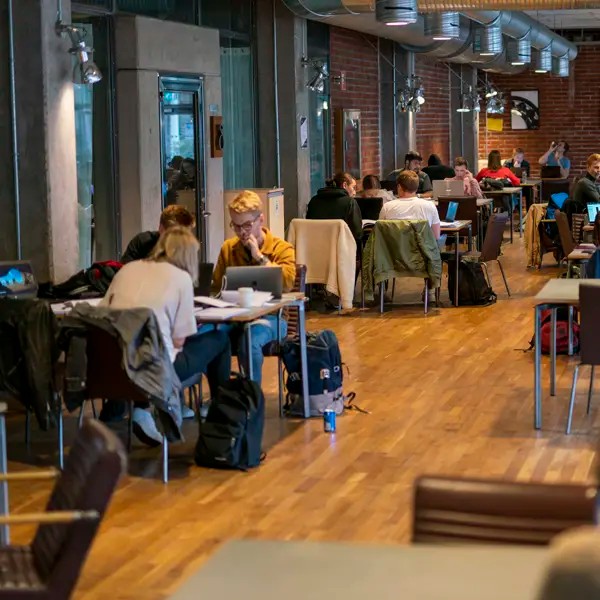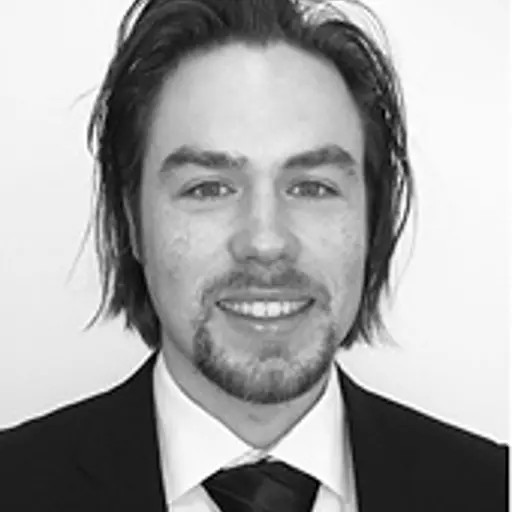
Every day, freight trains, trucks, aeroplanes, and ships transport enormous quantities of raw material and manufactured goods around the world, while billions of people travel for work and leisure in the same manner. This master's programme will prepare you to meet the ever-changing demands in the critical industries of aerospace engineering, automotive engineering, marine technology, and railway technology, with the option to specialise in one in particular.
Mobility engineering master's programme at Chalmers
Freight trains, trucks, cargo aircrafts and ships transport large quantities of raw material and manufactured goods around the world. Every day, billions of people commute by using trains, cars, aeroplanes and boats. This master's programme will prepare you to meet the ever-changing demands in the industry of aerospace engineering, automotive engineering, marine technology, and railway technology.
Goods and personal mobility play a significant role in the global economy as well as in our everyday life. Therefore, modern transportation needs to be safer, more efficient, and sustainable to ensure seamless mobility with minimal impact on the surrounding environment. This Mobility engineering master's programme will prepare you to develop sustainable, high-performance mobility solutions. You will be trained to understand features, design requirements and challenges of the present and future mobility solutions. You will also gain a holistic knowledge of mobility solutions and the ability to apply them for different transportation needs and environments. Sustainable development is considered throughout the programme in all focus areas. In addition to the holistic knowledge, you will acquire in-depth knowledge in one of the profile areas: aerospace engineering, automotive engineering, marine technology, and railway technology. This in-depth knowledge will prepare you for working as a specialist within that field. Beyond the compulsory courses, which are common for all profiles there will be a project course for each profile.
Different subjects are discussed from a technical, societal, economical, human, and ethical perspective. The programme is based on lectures, assignments, simulations, experiments, study visits, and projects carried out as real case studies. The interconnection and collaboration with the transportation industry and transport administrations in the programme are significant and include guest lectures, study visits, laboratory exercises as well as tasks to our project courses. In the project courses, you will gain skills in project work, including communication, teamwork, and project management. The master thesis projects are often carried out in collaboration with the industry.
Before coming to Chalmers, I worked in the aerospace industry, however; neither my studies nor work was related to sustainable solutions in aerospace

Topics covered
The subjects of system engineering, propulsion systems, mechatronics in the field of mobility, technological aspects of connected fleets, structural engineering, product life management, and artificial intelligence are fundamental areas in the Mobility engineering programme.
The courses handle topics such as sustainable high-performance propulsion (including combustion, hybrid, and electric powertrains), vehicle automation, reliability analysis, load analysis and responses, passive and active safety to reduce and prevent injuries, vehicle engineering and aerodynamics, numerical methods, structural mechanics, structural and material deterioration, and designing and optimization of mechanical components.
Career
The Mobility engineering programme at Chalmers will lead to professional roles within research and development, design and simulation of processes, systems, and parts of automotive, railway, aerospace and maritime vehicles or other mechanical systems. Both the holistic approach and the possibility for in depth studies provided in the program also offers a suitable background when aiming for a career/role within academic research, technical support, sales, manufacturing or management at different levels.
Graduates from the programme can be found at companies such as Volvo Group, Volvo Cars, SSPA, Trafikverket, GKN Aerospace, etc. There are also graduates that continue with PhD education within mobility, at Chalmers or other universities worldwide.
Research
Automotive engineering research at Chalmers is carried out together with the Swedish Automotive industry and within several national centres and laboratories, for example.
- SEC
- CERC
- SAFER
- Revere
Main vehicle attributes are studied including vehicle dynamics, vehicle aerodynamics, active & passive safety, and propulsion. Much of the work is focused on transport efficiency, automated driving, safety of vehicles and alternative propulsion systems.
Marine technology research at Chalmers is carried out within shipbuilding design methodology, structural and strength properties of structures, vessel stability and manoeuvrability, lightweight construction and risk analysis, construction structures and systems for utilising ocean resources. Within hydrodynamics, experimental testing and development of numerical methods are conducted to analyse and evaluate hydrodynamic properties and the design of hulls with respect to resistance, propulsion, manoeuvring or sea characteristics. The research contributes to sustainable shipping, maritime safety and energy efficiency. The research activities are connected to different centres such as Lighthouse and Kongsberg UTC.
Railway technology research at Chalmers focuses mainly on logistics, constructions and railway mechanics. The latter is carried out within the national centre of excellence CHARMEC and concerns all aspects from the dynamic train-track interaction, to material deterioration, noise emissions and digitalisation of maintenance. The world-leading research in this area is reflected in the focus of the railway profile of the Mobility engineering programme.
Aerospace research at Chalmers has a strong position and we are frequently the largest benefiter among the Swedish universities within the national flight research programme. Chalmers is also well-positioned in European research activities and has a very strong industry network. Research strongholds are in propulsion systems, fluid-solid- and material mechanics and manufacturing as well as radar and AI technology. Research tasks range from developing new models and computational methods in fluid/solid and material mechanics, production simulations, experimental investigation of heat flows and aerodynamics in new types of propulsion systems as well as understanding how aerospace can transition to a sustainable part of the transport system.
Find out more about research in Mechanics and maritime sciences
Requirements

How to apply - From application to admission
This is a step-by-step guide on how to apply for a Master's programme at Chalmers University of Technology.

